Mulching isn’t just about keeping weeds at bay. It’s one of the easiest ways to create a healthier, more productive vegetable garden without spending much.
A good mulch keeps the soil moist, protects roots from extreme temperature swings, and slowly enriches the ground as it breaks down.
If you’ve been wondering what to use around your plants, some of the best options might already be in your backyard.
Each of these organic mulch ideas adds a unique benefit, and over time, they all help turn tired soil into a rich, living foundation for your veggies to thrive. Let’s take a closer look at what makes each one special.
#1 Straw and Seedless Hay
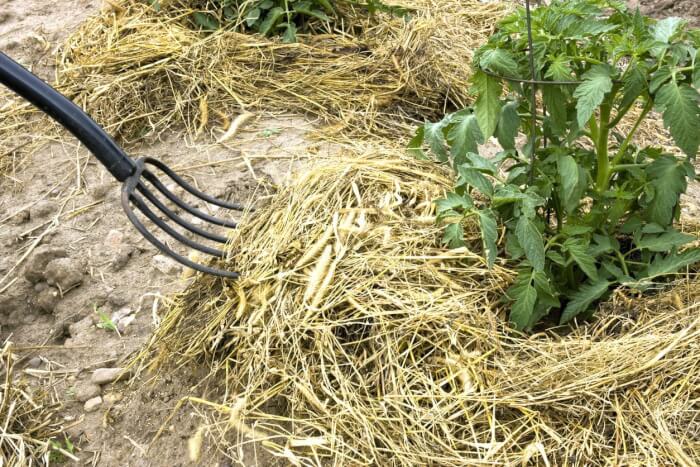 Source: Gardeningknowhow
Source: Gardeningknowhow
Straw and seedless hay make a light, airy mulch that’s perfect for vegetable beds. They allow water to pass through easily while helping to trap moisture below the surface.
These mulches are also great at suppressing weeds, especially between rows or around tall crops like tomatoes. After a few months, they begin to break down and enrich the soil.
Make sure you’re using hay that’s free of seeds to avoid extra weeding later. Spread a thick layer around your plants, then top it up as needed during the season.
#2 Grass Clippings
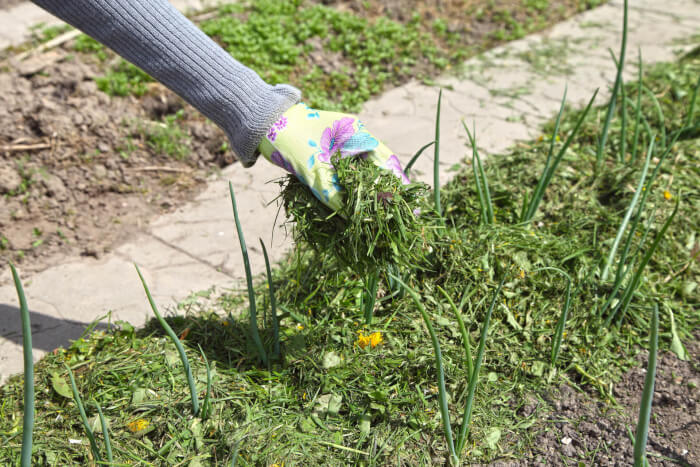 Source: Executivelawncare
Source: Executivelawncare
Freshly cut grass offers a quick nitrogen boost and helps keep the soil warm during cooler spells. It works best around crops like peppers and tomatoes that enjoy extra warmth early in the season.
As it breaks down quickly, it adds nutrients to the soil while helping to retain moisture. Let the clippings dry out slightly before using to avoid matting or odor issues. Apply in thin layers at first, and gradually build it up as your plants grow.
#3 Newspaper or Cardboard
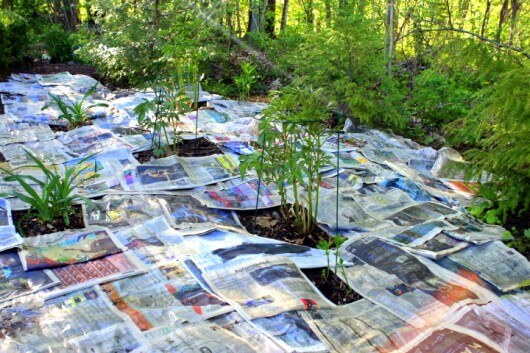 Source: Agardenforthehouse
Source: Agardenforthehouse
Layering newspaper or cardboard in your garden creates a strong barrier against weeds while still letting water through.
It’s a smart way to recycle and give your plants a better chance to thrive. Worms and beneficial insects love to nest underneath, slowly turning these materials into compost.
Wet the newspaper or cardboard before laying it down to keep it from blowing away. Add a layer of straw or compost on top to keep it tidy and help it break down faster.
#4 Living Mulch
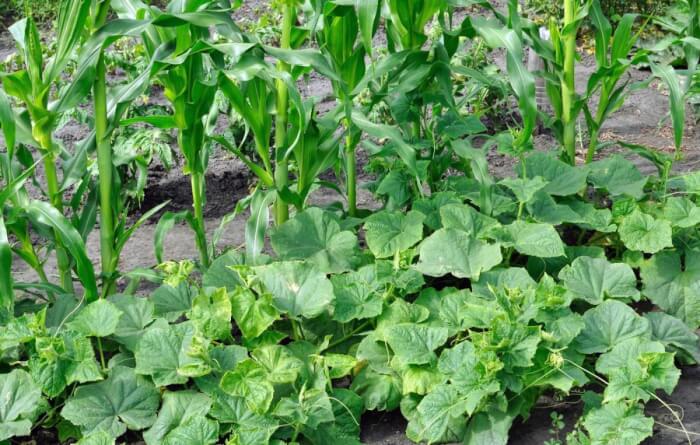 Source: Krishijagran
Source: Krishijagran
Some plants can act as a living mulch, offering coverage and benefits beyond just greenery. Trailing vegetables like squash, melons, and cucumbers shade the soil, helping it stay cool and moist while also keeping weeds out.
When planted among tall crops like corn or tomatoes, they make the most of the available space. These companion plants can improve soil health while producing food at the same time.
Choose varieties that grow well in your climate and pair them with crops that enjoy similar conditions.
#5 Dry Leaves
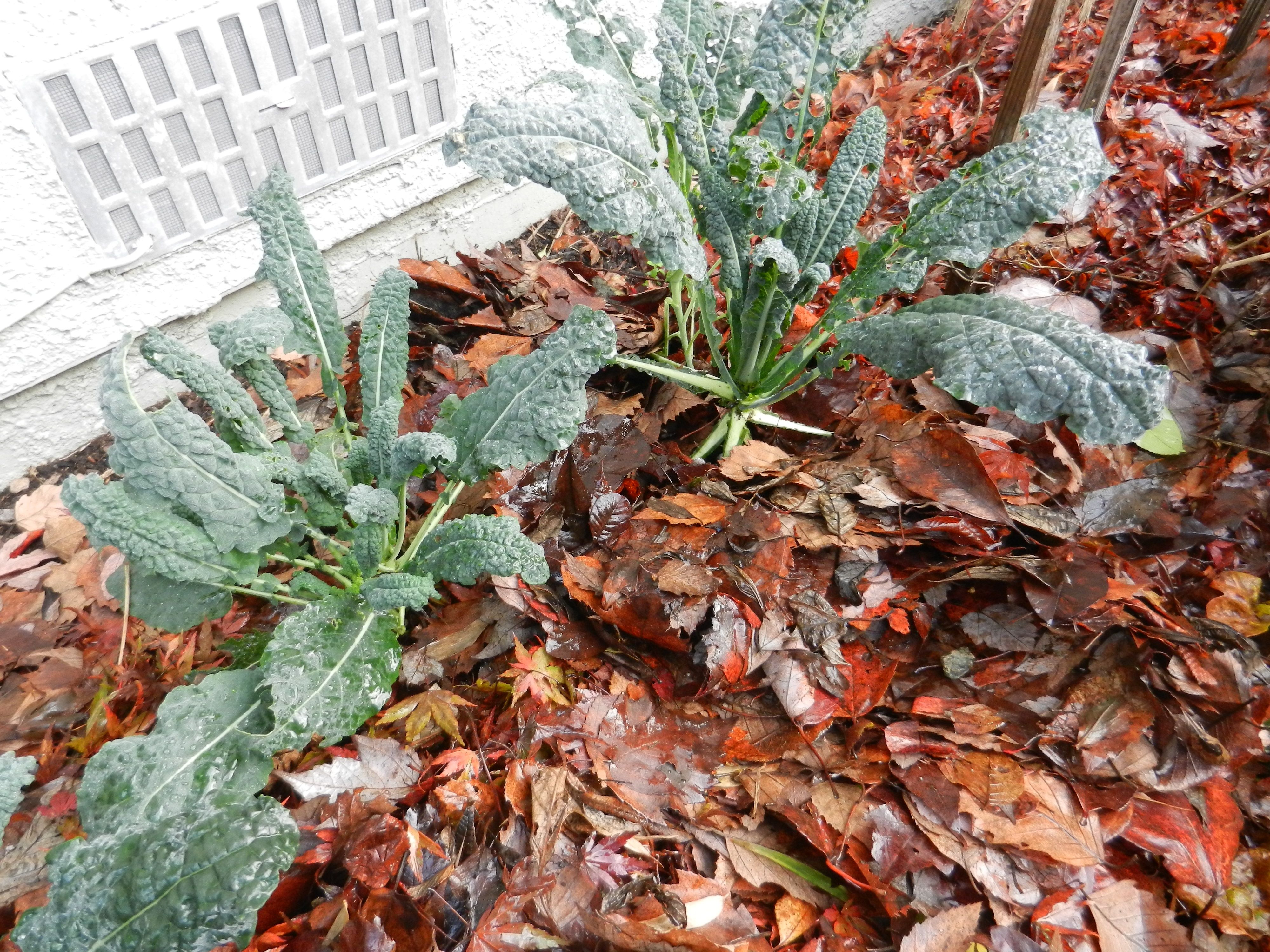 Source: Russellnursery
Source: Russellnursery
Fallen leaves are a free and effective mulch that breaks down slowly into rich humus. They create a soft cover over garden beds, helping to protect soil during cooler months and hold moisture during the growing season.
You can use them whole or shred them first for a neater look and quicker decomposition. Pile them up in fall, then either work them into the soil or let them sit over winter. Over time, they’ll boost soil structure and attract helpful organisms.
#6 Wood Chips or Shredded Bark
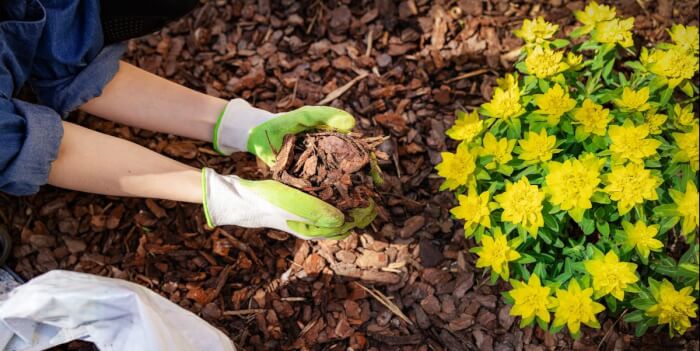 Source: Goodhousekeeping
Source: Goodhousekeeping
Wood chips and bark offer a tidy, long-lasting mulch that works best for perennial vegetable beds or around the edges of your garden. They’re especially helpful in reducing runoff and erosion during heavy rains.
While they don’t break down as quickly as other mulches, they still improve the soil slowly over time. Avoid using them too close to delicate seedlings, since they can tie up nitrogen as they decompose.
Create paths with them or lay them around larger plants that don’t mind a slower nutrient release.
#7 Compost
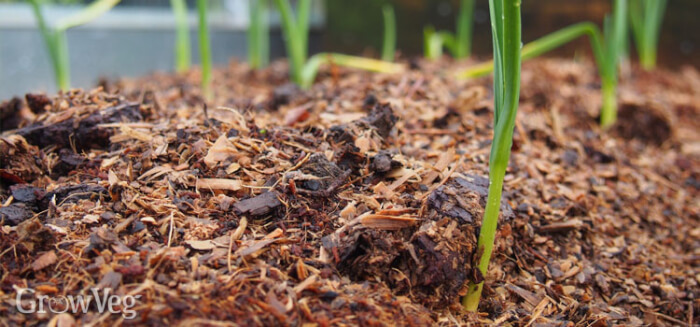 Source: Growveg
Source: Growveg
